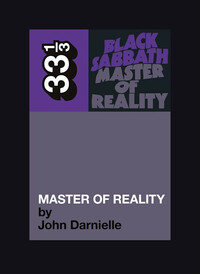Take a photo of a barcode or cover
sad
medium-paced
Plot or Character Driven:
Character
Strong character development:
Yes
Loveable characters:
Complicated
Diverse cast of characters:
No
Flaws of characters a main focus:
Yes
dark
mysterious
fast-paced
Plot or Character Driven:
Character
Strong character development:
Yes
Loveable characters:
Complicated
Diverse cast of characters:
No
Flaws of characters a main focus:
Yes
I've read this at least five times now. It's an important book to me because it's like time travel back to 1988 or so when I was hospitalized a few times and then put into a group home. From the first pages, I could hear echoes of my younger self in the voice of the protagonist. John Darnielle worked for some time in southern California as a psychiatric technician, and he clearly has a tremendous amount of empathy for the adolescents he worked with. A lot of what's in the book matched my thoughts at the time and experiences almost point by point. The analysis of the Black Sabbath album the book is supposed to be "about" is secondary, but it's also excellent. He absolutely nails both the experience of being a teenager in a hospital as well as the experience of looking back at it as a young adult, though. I could not recommend this book more highly.
This ended up being a lot more engaging than I expected it to be, considering (a) I'm not really a fan of Black Sabbath, and (b) the format in which it's presented (a fictional account of a boy through his letters to his state-sanctioned therapist). But Darnielle is damn good, so it works.
emotional
reflective
sad
medium-paced
Plot or Character Driven:
A mix
Strong character development:
Yes
Loveable characters:
Complicated
Diverse cast of characters:
No
Flaws of characters a main focus:
Yes
I've come back to this book three times in the past year now. A teenager's reliance on art, specifically music, will always speak to me, as is the feeling of an adolescence lost to something far bigger than ourselves. I hope Roger is able to make peace with himself one day. God knows I'm trying to do it myself.
I know from interviews and comments he's made at book signings I've been at that at least some of the inspiration for this book is a particular patient John Darnielle worked with in an in-patient facility. I wish I had this at the time I met him so I could have had it signed along with his other novels.
The entire book is set up as a series of journal entries. The first half by a young man in an in-patient mental health treatment facility who is being forced to journal as a part of ongoing therapy. Rather than write directly about his thoughts and feelings, he tries to rebel by writing about his favourite album, Masters of Reality by Black Sabbath, which is among the tapes they took from him when he was committed. This of course results in far more insight into his thoughts than he intends. The second half picks up almost ten years later, eight years since he was discharged on his eighteenth birthday. The man has found his old journal and tapes while moving after a breakup, and begins writing again, ostensibly as letters he intends to send to the therapist that first made him write in the journal, about what happened in his life, and the continuing influence of Masters of Reality on him.
Speaking as someone (a teacher) who regularly reads what teenagers write, I can say with some authority that during the first half John Darnielle does an above fair approximation of writing like a teenager. The short declarative sentences, the repetition of language, some of the themes and conceits...it verisimilitude and consequently the suspension of disbelief that these are the musings of a possibly troubled teenager.
For those who have read Wolf in White Van, the second half will feel very familiar. I can readily see how this was a warmup for that most excellent exercise in literary fiction. The voice is and tone are very similar, and some of the imagery during this inner journey, this exploration of self and history by the narrator, are clearly leading up to that.
Some particular one liners and thoughts that popped out from this half for me, "As if all the messages were useless, and all the messengers knew it...". And perhaps more as it applies to the practice of mental health and how to approach clients, something which I know John Darnielle is intimately familiar with, "...how it spoke to me where I was instead of trying to tell me where I was supposed to go."
The entire book is set up as a series of journal entries. The first half by a young man in an in-patient mental health treatment facility who is being forced to journal as a part of ongoing therapy. Rather than write directly about his thoughts and feelings, he tries to rebel by writing about his favourite album, Masters of Reality by Black Sabbath, which is among the tapes they took from him when he was committed. This of course results in far more insight into his thoughts than he intends. The second half picks up almost ten years later, eight years since he was discharged on his eighteenth birthday. The man has found his old journal and tapes while moving after a breakup, and begins writing again, ostensibly as letters he intends to send to the therapist that first made him write in the journal, about what happened in his life, and the continuing influence of Masters of Reality on him.
Speaking as someone (a teacher) who regularly reads what teenagers write, I can say with some authority that during the first half John Darnielle does an above fair approximation of writing like a teenager. The short declarative sentences, the repetition of language, some of the themes and conceits...it verisimilitude and consequently the suspension of disbelief that these are the musings of a possibly troubled teenager.
For those who have read Wolf in White Van, the second half will feel very familiar. I can readily see how this was a warmup for that most excellent exercise in literary fiction. The voice is and tone are very similar, and some of the imagery during this inner journey, this exploration of self and history by the narrator, are clearly leading up to that.
Some particular one liners and thoughts that popped out from this half for me, "As if all the messages were useless, and all the messengers knew it...". And perhaps more as it applies to the practice of mental health and how to approach clients, something which I know John Darnielle is intimately familiar with, "...how it spoke to me where I was instead of trying to tell me where I was supposed to go."
dark
funny
reflective
medium-paced
Loveable characters:
Yes
fully blown away by this. i cried several times, i recognised so much of my young self, i wished that i too could reach back to a time in my life when one record was my whole world
dark
reflective
sad
medium-paced
Strong character development:
Complicated
Loveable characters:
Complicated
Diverse cast of characters:
No
Flaws of characters a main focus:
Yes
dark
reflective
fast-paced
Strong character development:
Yes
Loveable characters:
Yes
Diverse cast of characters:
No
Flaws of characters a main focus:
Yes






